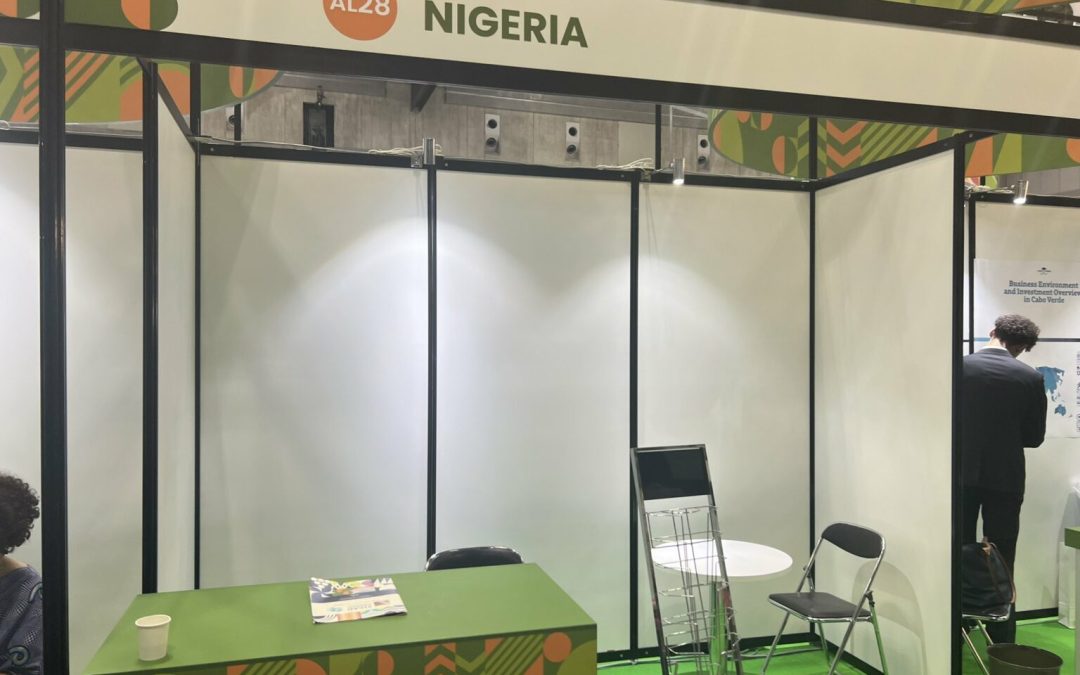Nigeria’s participation in the ninth Tokyo International Conference on African Development (TICAD9) has been overshadowed by a dual controversy involving an unmanned exhibition booth and claims of President Bola Tinubu being sidelined in a group photograph of world leaders.
The furor began when images and videos of an empty Nigerian booth at the conference venue went viral.
In response to the growing outrage, both the Nigerian Ministry of Foreign Affairs and the Presidency issued statements to address the issue.
Why Nigeria’s TICAD Stumbles Should Worry Every Nigerian Abroad
As Nigerians living in the diaspora, we often find ourselves as de facto ambassadors of our nation. In professional settings, social circles, and even casual encounters, our interactions shape the global perception of Nigeria. That’s why the recent stories emanating from the Tokyo International Conference on African Development (TICAD9) should resonate deeply, beyond mere online chatter. The optics of an unmanned Nigerian exhibition booth and the whispers of President Tinubu being subtly sidelined in a group photograph are not just embarrassing headlines; they are potential setbacks for our collective image and influence abroad.
The image of an empty Nigerian booth at such a significant international forum is, frankly, a punch to the gut. TICAD is designed to foster trade, investment, and development partnerships. For Nigeria, a nation brimming with talent, innovation, and untapped potential, to present a vacant space speaks volumes – and none of it is positive. It suggests a lack of preparedness, a possible underestimation of the event’s importance, or even a logistical failure. Regardless of the reason, the visual impact is stark: Nigeria appears disengaged, perhaps even unserious.
Why should this matter to those of us thousands of miles away? Because this perception bleeds into how the world views Nigerians as a whole. When international partners question our government’s attention to detail and organizational capacity, it can indirectly impact the opportunities available to Nigerian professionals and entrepreneurs seeking to collaborate or expand globally. It can fuel negative stereotypes and make our individual endeavors that much harder. We are often judged, fairly or unfairly, by the actions and representations of our home country on the world stage.
Similarly, the reports, however contested by official sources, of President Tinubu’s alleged less-than-prominent placement in the leaders’ group photograph carry a symbolic weight. In the intricate dance of international diplomacy, every detail matters. While protocols are complex, perceptions of being overlooked or undervalued can signal a nation’s standing within the global hierarchy. For Nigerians in the diaspora, a perceived diminished stature of our leadership on the international stage can translate to a weakening of our collective voice and influence.
The presidency’s attempt to downplay the “outrage at incompetence” by emphasizing high-level meetings is a familiar tactic. Substantive engagements are undoubtedly crucial. However, effective international relations require a multi-pronged approach. The visual representation of a nation – its presence, its engagement at all levels – contributes significantly to its overall impact. Neglecting seemingly minor details like a well-manned booth can undermine the very message of progress and partnership that those high-level meetings aim to convey.
As Nigerians in the diaspora, we have a vested interest in a Nigeria that is respected, influential, and seen as a valuable partner on the global stage. Our successes abroad are often intertwined with the perception of our nation’s strength and competence. When our country appears to stumble on the international stage, whether through an empty booth or an ambiguous photograph, it casts a shadow that extends far beyond the conference halls of Yokohama.
We must demand better. We must hold our leadership accountable for ensuring that Nigeria is represented with the dignity and effectiveness it deserves in all international forums. Our collective reputation, both at home and abroad, depends on it. The unmanned booth and the uneasy picture may seem like minor incidents, but they serve as potent reminders that in the global arena, every detail counts, and Nigeria must strive for excellence in every aspect of its engagement. Our voices in the diaspora can and should contribute to this demand for higher standards.

